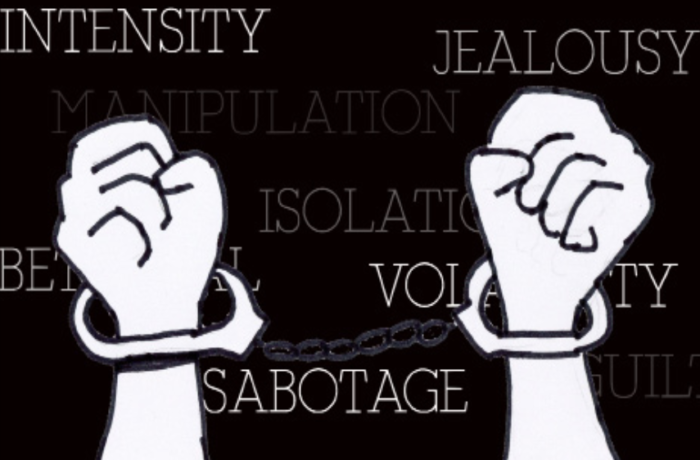By Katherine Martin
Executive Editor
Sarah caught her boyfriend in bed with a good friend when she saw their location together. Emma’s parents thought she was kidnapped when they saw her location on the side of the highway. Anne went days without calling her friends because she knew where they were. Location tracking apps have been wreaking havoc across campuses.
“Snap Maps” allows you to see where people were the last time they opened the location-tracking app, if they choose to disclose their location. Find My Friends, the more accurate GPS system, allows you to track those who share their location with you at any time of the day.
The apps offer a way to check on friends and find the most crowded party, but many students also consider them “creepy” and “intrusive”. According to a recent Defender survey of 70 students, those who actively use the apps check them on average 5-10 times a day. While many college students like the apps “for safety reasons,” their usage has grown well beyond checking in on drunk friends.
“I know how often people use it to see where their friends are and I don’t like how people can see every detail of where I am,” said a recent alumni.

Why share your location?
“You can see where your friends are if you are concerned for their safety,” said Annie Good ‘22. Many students agreed that they like Find My Friends for safety reasons like locating drunk friends on a night out.
“I dropped my phone out of an uber on the side of the highway coming home from downtown,” said Emma Coleman ‘21. “My mom had tracked me that night and saw that I was on the highway. She thought I was just going home, but the next morning she tracked me again and saw that my phone was at the same spot as the night before. My mom was very worried and thought I had been kidnapped. She called public safety. I used to hate how they had my location and used to turn my location off, but after this incident I keep it on at all times just to be safe.”
According to the survey, 33 percent of users have their parents on the app.
“I have both my parents on Find My Friends,” said Alex Vincent ‘19. “I recently turned it off because I didn’t like the feeling of being watched. My Dad’s argument for making me keep it on was that he liked the idea of being able to check in on me if I was traveling back and forth from school. As long as it’s not used to stalk people than it is fine but the minute it feels like people are keeping tabs on me I don’t like it.”
While there are times that the app has been useful in crises, it is used much more largely for curiosity reasons. “In terms of use, my mind would go to emergency situations but I think those are few and far between what it is actually used for,” said Catherine Welch, assistant dean of students.
Impacts relationships
“My ex-boyfriend and I were on a break and I checked Snap Maps late at night and saw that my good friend slept over his apartment the first weekend we decided to go on a break,” said Sarah, a senior at UVM. “I found out later she slept in his bed. I wouldn’t have known or asked about it if I didn’t check snap maps. My friend quickly turned her location off after the fight.”
According to the survey, 25% of students in relationships track their significant other’s location. Five students said they have caught someone cheating on them through Find My Friends and three answered that they have been caught themselves.
“I got caught dating my friend’s ex-boyfriend,” said Olivia ‘21*. “We were keeping it on the down low but they she tracked our location and found us together.”
Parents and significant others are not the only dots on the Find My Friends map. Forty percent of users have over 15 people on Find My Friends, proving it to be used most commonly among friends.
“Before this app I would call my friends first thing out of a three hour class to ask where they are to hangout and now I just go “find” them,” said Anne ‘19. “Vice versa, I am busy and work a lot. If my friend found my location and sees I am at work they probably won’t ask me to hang out. It takes away from expressing how much you would like to hang out with someone and how often you think about them.”
“Maybe they’re in the library and they were having a really bad day, you could hear in their voice they were about to cry and you’d be like ‘I’ll be right there,’” Welch said. “But now it’s like well I won’t even call because I know they’re in the library or at the gym and I’ll just talk to them later.”
Elevates social anxiety
Looking at someone’s GPS coordinates doesn’t tell the full story of why they are in that specific place. Speculation or false assumptions can be drawn from checking someone’s location.
“When I was with my ex, I found myself checking his location, especially when I thought a friend of his was more than a friend,” said Jane Harris* ‘20. “He was being honest though so it made me look bad.”
On the other hand, they can tell you when your friends are together without you, regardless of what they are doing. “Sometimes I will see my friends hanging out without me and that sucks,” Harris said.
Several students acknowledged that location apps either create or increase FOMO (fear of missing out).
“Young adults are learning socially who they want to be and how they want to engage and I think it’s natural that people would feel left out,” Welch said. “Technology increases that likelihood because you are constantly aware of what everyone else is doing or their best lives that they put on social media.”
Lack of independence
Even solo runs or trips to the store become known to everyone you share your location with. Turning your location off is an option however, 58% of users responded that they believe their friends would find them suspicious if they turned their location off. In addition, 48% of users said they would find their friends suspicious if they did the same.
In this case, privacy jeopardizes social status. “I don’t like that if I want to be alone or do things without others it look suspicious,” said Alyssa ‘20.
“Even when you’re at the gym listening to music and you think you’re unplugged, you’re not unplugged because friends on the app could find you at all times,” Welch said. “That would be startling to me. You’re always on.”
*Names changed for anonymity


